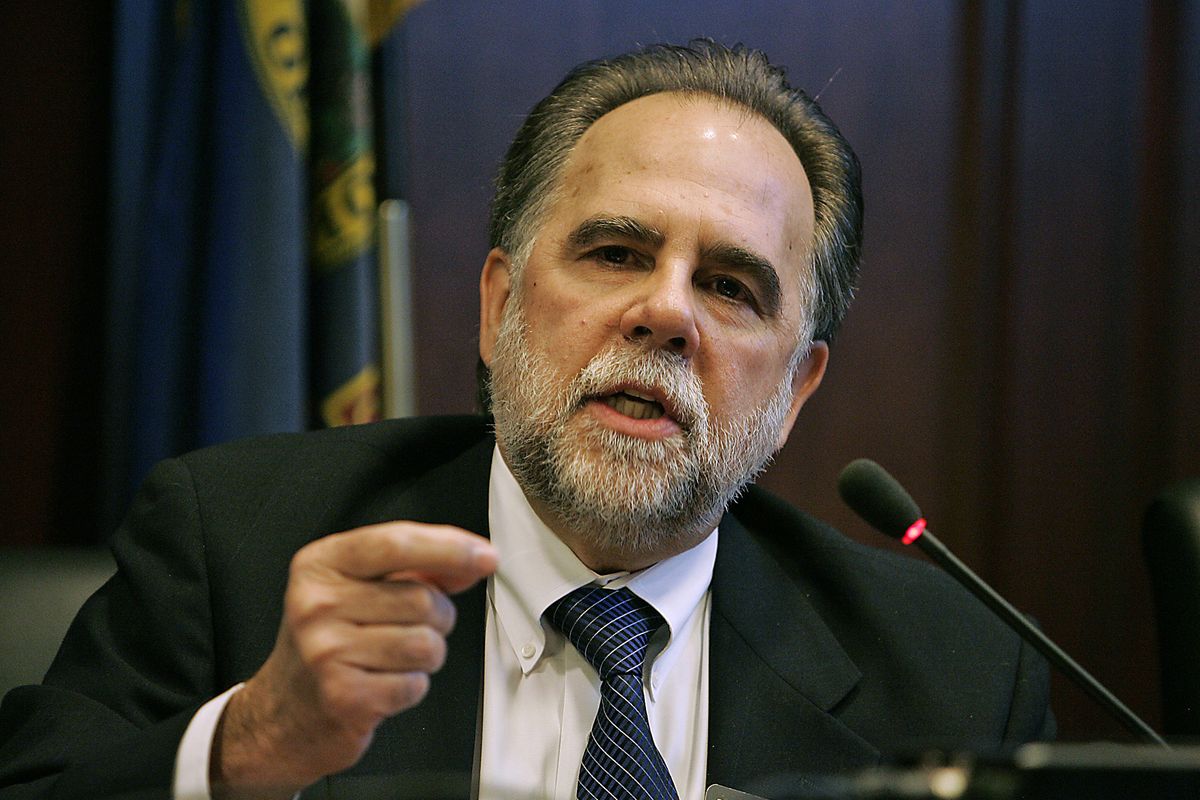Idaho Rep. Vito Barbieri’s abortion question stirs up social media

BOISE – A North Idaho lawmaker drew national attention Monday when he received a brief lesson on female anatomy after asking if a woman can swallow a small camera for doctors to conduct a remote gynecological exam.
Dr. Julie Madsen, who was testifying in opposition to anti-abortion legislation, said no, explaining, “When you swallow a pill, it would not end up in the vagina.”
“Fascinating,” said Rep. Vito Barbieri, a Dalton Gardens Republican and supporter of the bill. “That certainly makes sense, doctor,” he said, amid hoots of laughter from the crowd.
The exchange came during a three-hour hearing on a bill that would add restrictions to medication-induced abortions in Idaho. The legislation is aimed at preventing the procedures from occurring via telemedicine in what opponents have dubbed “webcam abortions.”
But Barbieri said later his question was rhetorical, and he knew the answer. Madsen had just described how a tiny camera can be swallowed by a patient as part of a colonoscopy.
“She was drawing a parallel between a colonoscopy and how much more dangerous it was than a chemical abortion,” Barbieri told The Spokesman-Review. “So, I was trying to draw out the distinctions.”
But Twitter ground into gear, and Barbieri’s question along with the blunt response lit up social media and made the Huffington Post. Several times on Monday, his Wikipedia page was altered to include the exchange under the category for Barbieri’s education.
After much testimony both for and against the bill, the House State Affairs Committee approved it on a straight party-line vote, 13-4, with only the committee’s four Democrats objecting. The bill now heads to the full House for a floor vote. “I just want to point out that I think from my perspective, telemedicine has great advantages,” Barbieri said. “It’s important to recognize cost savings, ease of use, accessibility. However, there are certain examinations and procedures which require personal hands-on exams, and I think this is one of them. … This is a proper role of government to protect life.”
Rep. Melissa Wintrow, D-Boise, said, “We have heard testimony from a doctor … that this is a very safe and reliable form of abortion in the early term of pregnancy. … If this was about safety, we would not hear some of the arguments or discussion points about religion and separation of church and state.”
Rep. Linden Bateman, R-Idaho Falls, said, “In my view, HB 154 may indeed reduce the number of abortions that take place. And from the very beginning of my political career, I took the oath to protect the unborn child. And I know we all have different views on this subject, but because they are so helpless and so vulnerable, we’ve got to step up.”
The measure is one of several abortion-related bills Idaho lawmakers are considering this legislative session. Another measure pending in the Senate would require doctors who perform abortions to have admitting privileges at a local hospital.
This isn’t the first time Idaho lawmakers have drawn attention while debating abortion legislation.
In 2013, Republican Rep. Ron Mendive of Coeur d’Alene drew audible gasps in a committee when he asked if the American Civil Liberties Union-Idaho’s pro-abortion stance also meant they supported prostitution. A year prior, Republican Sen. Chuck Winder of Boise drew national criticism after he suggested on the Senate floor that a doctor should ask a woman who says she was raped if her pregnancy could have been caused by “normal relations in a marriage.”
The Associated Press contributed to this report.